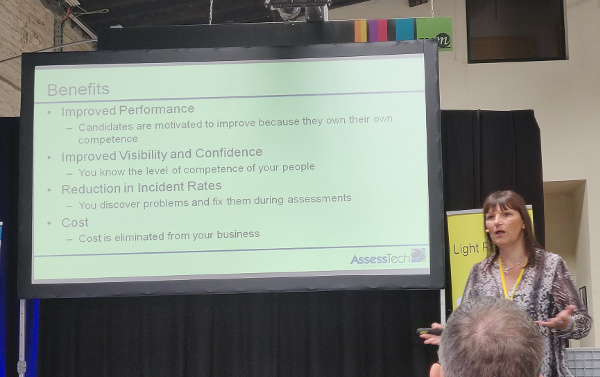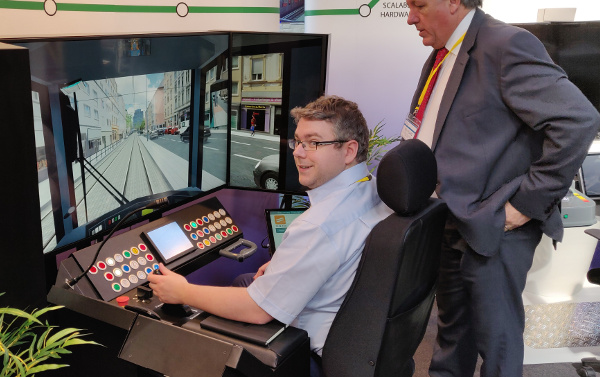Focus on safety at EU Light Rail Conference
The recent EU Light Rail Conference which took part in Brussels on 16th and 17th May attracted decision makers and industry influencers from across the light rail and tramway systems industry and one of the key themes discussed this year was the role of technology in safety management.
Peter Cushing, Light Rail Safety Standards Board, said at the conference that the LRSSB’s aim is to “Develop and maintain professional standards removing bespoke and over engineered design in an open, collaborative learning environment, with measurable excellence in health and safety management”
.

There was a lot of agreement with Sally Brinkley’s talk on Developmental Competence Management from the audience. Sally emphasises that a developmental approach to assessment focuses on addressing the active failures of the candidate during normal operations, rather than waiting for incidents to happen and being reactive, which is the case for a compliance-based approach. This focus leads to a pro-active approach to preventing incidents and delivers many associated cost benefits. This approach is critical within Light Rail where the drivers are, in many cases, the main line of defence.
David Steele, Market Director from Cowi UK Ltd., agrees with Sally’s comments, “Light rail requires a unique set of competencies and standards to ensure a safe railway. It is clear to me that a developmental approach will encourage higher levels of competence and effectiveness through the identification of skills, knowledge and appropriate behaviours and that this can lead to improved performance, visibility and staff satisfaction as well as potential reduction in incidents, greater innovation and cost savings. Targeting specific, identified areas of weakness and developing a set of selection needs for each role seems obviously preferable to a purely compliance based approach.”

We met Ian Rowe, Director of Tram-Pro, a company that provides driving simulators to the light rail industry. Together we hatched a plan to use developmental assessments in conjunction with the Tram-Pro simulator to further deliver safety improvements. Similated assessments can focus on out of course situations which are dangerous or impossible to create in a real operational envoriment. Driver performance can be mapped to assessment criteria and identify areas for further training – all of which will further improve performance and confidence for the driver. More on this in the coming weeks – watch this space!
Plus, it was fun to see Brock trying to drive a Tram. It’s a lot harder than it looks apparently!
“Developmental Competence Management is a must for the Light Rail Industry. We’ve been working with heavy rail for a number of years which has significantly reduced the number of incidents. Light Rail has additional challenges as the drivers need to have additional line of sight driving where there are external risk factors that the driver has no control over. We’ve worked closely with First Tram Operations who see adoption of developmental competence as a key strategy to minimise risk within their business.”, said Sally Brinkley.






